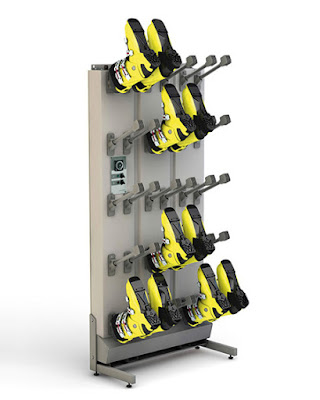Have you heard about trench foot?
In 1812, trench foot was first recorded with Napolean's Army. It was a big problem during First World War.
Trench foot is one one of many immersion foot syndromes. It is a medical condition caused by prolonged exposure to damp, cold, unsanitary conditions. The affected feed become numbs, its color change and swells. It also starts to smell due to damage to the skin, blood vessels and nerves in the feet.
Trench foot if left untreated will usually results in gangrene, which may require amputation. But if treated properly, complete recovery is possible, but may marked by severe short-term pain when feeling returns.
With our advanced technology today, trench foot can be prevented even during winter. For those people at risk especially on cold and wet weathers, CozyWinters brand and products like heated boots, foot warmers, heated hoodie, electric gloves and the likes are now available.
How to prevent trench foot?
First you should now the symptoms. Festival goers, fishermen and soldiers are one of those who likely suffer from it. People indoors can also suffer from it because unlike frostbite, it doesn’t require freezing temperatures. It can develop in temperatures up to sixteen degrees celsius (sixty degrees Fahrenheit)
Symptoms of trench foot include swelling of the feet, tingling and numbness, blotching of the skin and itching. Sometimes, blisters can also form, with the risk of infection.
Prevention is better than cure as this condition can be extremely painful. Here are how you can prevent trench foot:
Wear clean, dry socks and shoes
Change socks daily or more frequently as possible especially if working in damp conditions. Have two or more pairs of work shoes or boots to ensure starting the shift with dry footwear.
Keep feet dry
Use waterproof (polypropylene) sock liner that are specially designed to draw moisture away from the feet keeping it dry. Apply talcum powder on feet, toes, and the insides of shoes or boots to keep moisture away
Don’t wear socks in bed
Allow the feet to breathe.
Good Foot Hygiene
Keep feet clean. Thoroughly clean and dry the feet before and after work.
Ensure shoes fit well
Avoid shoes that are too loose or too tight
Avoid synthetic materials
Avoid using shoes that are made of synthetic materials like rubber and vinyl
Control excessive feet perspiration of feet
If there is excessive feet perspiration, try to usse drying agents like aluminium chloride or with extreme cases Botox may help. But before undergoing any treatment, consult your doctor first.
You may also suggest to your employer to install wall-mounted and portable industrial boot dryer, available also at CozyWinters, at the workplace.
Trench foot can be treated and be prevented by taking the above precautions.



























